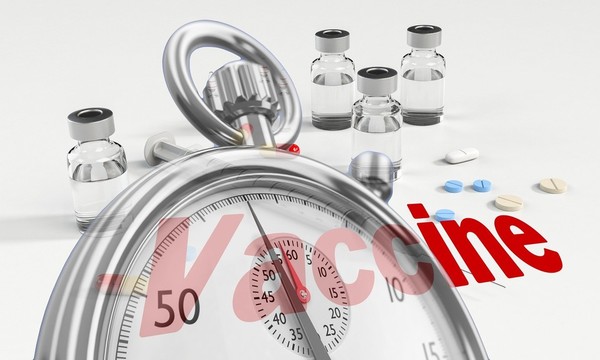Some Korean Covid-19 vaccine developers are expected to face difficulty in conducting late-stage clinical trials on time, raising concerns that the nation might not be able to secure “vaccine sovereignty.”
The delay will result from challenges such as high costs and additional verification of candidate substances, observers said.
Some industry officials said the government should help the companies resolve the issues to develop homegrown vaccines as soon as possible.
Genexine, working on Covid-19 vaccine candidate GX-19N, is grappling with fundraising for a large-scale clinical study.

The company had planned to issue 120 billion won ($105.9 million) convertible bonds but withdrew the plan due to opposition from shareholders.
With the CB issuance nullified, the company has to pay its clinical trial expenses.
However, Genexine has only about 30 billion-won cash and cash equivalents less than the planned CB issuance.
Genexine said it had over 800 billion won in assets that could be converted into cash.
This indicates that the company might sell some of its stakes in its Chinese partner I-Mab Biopharma and its affiliate NeoImmuneTech, industry watchers said.
“The board of directors will hold a meeting to discuss GX-19N trial plans, funding, and decides on the direction of the vaccine development,” an official at Genexine said.
Winning approval from local regulators is another challenge for Genexine’s late-stage trials.
Indonesia was expected to grant the nod for a large-scale study, but the health authorities asked Genexine to submit interim results of the phase-2a trial conducted in Korea.
The Indonesian drug and food regulator, Badan Pengawasan Obat dan Makanan (BPOM), is reviewing Genexine’s application for phase-2/3 trials of GX-19N.
“Interim results of the phase-2a trial in Korea are expected to be used for reference in Indonesia,” Genexine said on its homepage. “We are positive that Indonesia will approve phase-2/3 trials, but it is difficult to predict the outcome.”
Cellid, developing a Covid-19 virus vector vaccine candidate, AdCLD-CoV19, is also expected to push back the schedule for phase-2b/3 trials.
The company has recently completed the vaccine administration in the phase-2a study and was soon to enter the phase-2b trial.
However, on Friday, the company filed a request with the Ministry of Food and Drug Safety to change its phase-1/2a trial plan and conduct a new phase-1/2a study of new substance candidate AdCLD-CoV19-1.
The old vaccine candidate had a limitation in mass production, and the company supplemented the limit by changing the adenovirus vector, Cellid said.
The company said it would be possible to mass-produce the new vaccine candidate and reduce costs.
If the MFDS approves the changed trial plan, the company will complete the phase-1 trial of AdCLD-CoV19-1 and apply for phase-2b/3 trials based on the interim results of the phase-2a study.
This can put late-stage trials of the vaccine candidate behind time, and some observers said Cellid’s late-stage trials could be delayed by up to six months.
In response to such concerns, Cellid said it would not take much time to conduct the phase-1/2a trial of the new vaccine candidate.
An official at Cellid said the number of participants for the new vaccine candidate trial would be smaller than that of the old vaccine candidate, which would lead to less time to complete the study.
Also, local Covid-19 vaccine developers are finding it difficult to recruit participants for Covid-19 vaccine trials.
According to a recent nationwide survey on 1,600 adults by the Ministry of Health and Welfare and Korea National Enterprise for Clinical Trials, only 21.4 percent of the respondents said they were willing to participate in a Covid-19 vaccine trial.
“Even if a person receives a Korean Covid-19 vaccine candidate, the vaccination is not recognized in the Covid-19 vaccine passport issued overseas. So, some people give up the trial participation because they have to go on an international business trip,” an industry official said.
Korean companies may be able to complete phase-2 trials but find phase-3 trials much more challenging, he said.
“The government should fully support the vaccine development by jointly announcing the recruitment of participants for clinical trials,” he added.

